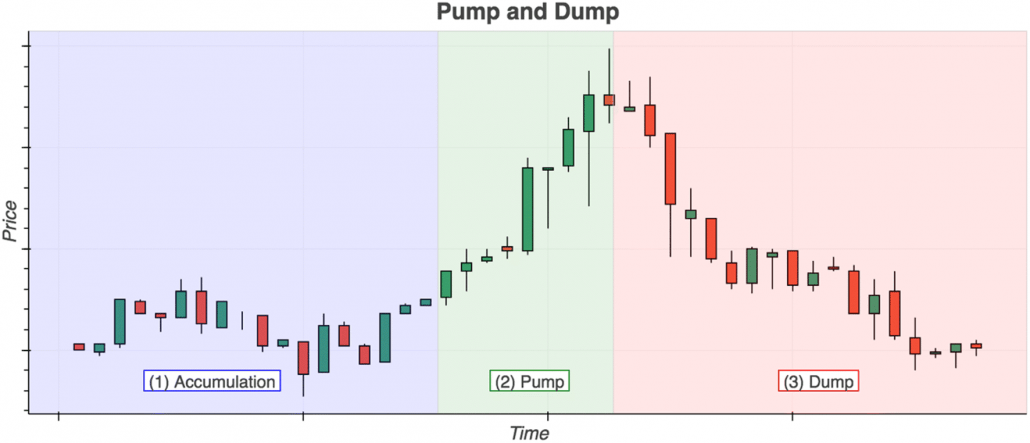Lingo so you can play NFT Bingo

Before you go all-in on NFT's, you must first learn the lingo. You can play with Degens and not get Reg Pulled by Whales, or Rekt by a Dump. Better HODL and Buy The Dip or you will miss all the fun.
HODL
HODL sometimes spelled out hodl or Hodl, started as a joke at a bitcoin fan's expense.
In December 2013, a member of the official bitcoin message board made an apparently inebriated post with a typo, in the subject line: "I AM HODLING." He was trying to say that he's "holding," as in, hanging on to his coins for the long term, regardless of any short-term price changes.
The post became a meme, as bitcoin fans retroactively made it so HODL stands for "hold on for dear life". The term is used to discourage selling when Crypto or NFT prices fall, and to ride it out until they return to previous levels.
To the MOON
- "To the Moon" is a term used when cryptocurrency prices are rising off the charts. By the same token, when a coin's price is "mooning," that means that the price has hit a peak. You might ask the grammatically incorrect question "when moon?" if you wanted to know the opportune time to sell your cryptocurrency before prices decrease.


Can we collectively agree to not let the #FUD settle in? It's not about the price, it's about the potential. #Bitcoin pic.twitter.com/SOX8yjjgOA
— Paxful (@paxful) September 18, 2021
FUD
"Fear, uncertainty and doubt," shortened to "FUD," isn't a term exclusive to the Crypto community.
Among Crypto traders, however, FUD is generally used to refer to anything, like negative press coverage or blog posts that might dissuade people from joining the cause of cryptocurrency.
Otherwise, FUD can mean a number of other things, including the practice of hyping up a cryptocurrency you own to drive its price higher, or sowing discord among owners of another coin so you can drive the price down and buy it cheaply.

REKT
Derived from the word "wrecked," you might say that a cryptocurrency investor got rekt when they made a bad trade, like selling their Crypto right before the price Moons. Don't Get REKT on the Margin Calls.
DYOR
"Do your own research" (DYOR) is a common pearl of wisdom: If you're told to DYOR, it means you should think for yourself and draw your own conclusions, rather than following the wisdom of the crowd — or lack thereof. Failure to DYOR can get you rekt.
SHILL
A shill, or shilling, refers to the person or the act of enthusiastically promoting a cryptocurrency or a crypto project, for their own personal gains. As a popular term in this space, a “shill”, or “shiller” encourages others to invest in a cryptocurrency. So that the interest grows, people buy it, and the price of the coin or token increases.

WHALE
From casino parlance: a trader with a fat account, usually one who is bullish and holds a large position in a specific Crypto. Whales are investors that have a big impact. They have so much money in cryptocurrencies that they can alternate the market.
BAGS
Portfolio of cryptocurrency that investors are holding. "Bags" usually refers to holding crypto you wanted to sell but have been hodling for too long, and is left to face the consequences.
Pump and Dump
The scams essentially work by artificially inflating the price of cryptocurrencies that are cheap then selling them when the value rises.
Pump-and-dump is a manipulative scheme that attempts to boost the price of a stock or security through fake recommendations. These recommendations are based on false, misleading, or greatly exaggerated statements.

Airdrop
In cryptocurrency, the term “airdrop” is used to describe a type of distribution event for a cryptocurrency or NFT's where tokens are distributed to existing wallets. Or more simply, an event where “free coins” or coins purchased during a pre-sale are “dropped” in existing wallets.

ATH
ATH simply means All-Time High and is used as an abbreviation to describe when a certain cryptocurrency or the entire market is traded at its highest price.
The ATH value represents the theoretical maximum price that one could have sold the particular asset for, and also represents the maximum price that another trader was willing to pay for that asset, during that period

